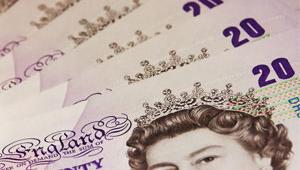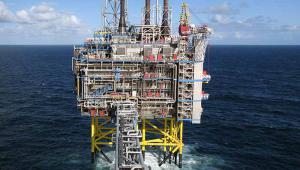This was despite the worsening picture on income tax, the Government Expenditure and Revenue (GERS) report released yesterday revealed.
It showed Scotland’s net fiscal balance, including North Sea oil, to be -£12.6bn, or -7% of GDP, in 2018-19, an improvement on last year’s figure of -8.1 per cent.
The improvement was driven by a larger increase in revenues per head than in expenditure, a trend also reflected across the UK as a whole.
However, the figures also reflected the worsening of income tax revenues north of the border, confirmed by new HMRC data released over the summer, which showed the number of higher and additional rate income taxpayers in Scotland to be lower than previously estimated.
That, combined with the fact that income tax revenues in the rest of the UK have risen more quickly than had been predicted, means the Scottish Government will have £204m less than expected in its next year’s budget.
The weakening position on income tax was offset to some extent by upward revisions to VAT data. Plans to assign VAT revenues to the Scottish Government were delayed last year following concerns over volatility in the estimates of tax receipts.
Finance secretary Derek Mackay said the figures reflected the strength of the Scottish economy, while the choices of the Scottish Government on taxation were helping to create a more progressive system.
"With record tax revenues, strong economic growth and near record low unemployment, Scotland’s economy and public finances are strong,” he said.
“Our notional deficit has fallen while public spending has increased thanks to our efforts to grow the onshore economy and the strong performance of taxes in Scotland.”
However, Scottish secretary Alister Jack said the figures showed the extent to which Scotland benefitted from remaining within the UK.
“These Scottish Government figures also show there would be a £12.6bn black hole at the centre of an independent Scotland’s finances,” he said.
“Real questions need to be asked about the first minister’s stewardship of the country’s economy.”
The Fraser of Allander Institute warned that although the figures inevitably sparked a debate over the future prospects of an independent Scotland, it should be borne in mind that they were based on the current structure of UK Government reserved taxation, and not on any alternative political and economic arrangements.
“If the very purpose of independence is to take different choices about the type of economy and society that we live in, then a set of accounts based upon the current constitutional settlement and policy priorities will tell us little about the long-term finances of an independent Scotland,” the institute said.
They did, however, provide “a pretty accurate picture” of Scotland’s current public finances.
“In doing so, today’s numbers set the starting point for a discussion about the immediate choices and challenges that need to be addressed by those advocating new fiscal arrangements,” it said.











